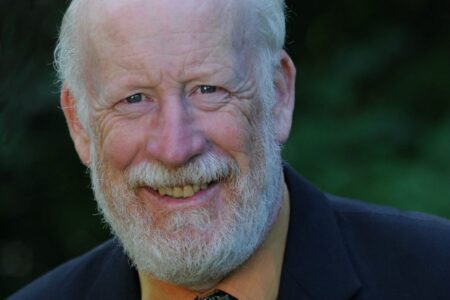Council Notes - Feb 23rd
New Start Time
After voting at the Feb 9th meeting to change the start time of city council meetings to 7:00 pm from the usual 7:30 pm it appears there was some confusion in getting the message out to councillors as Andy Stradling and Jill Spearn showed up at 7:20 ready for a 7:30 start only to find the meeting already in progress.
Any hopes of the earlier start time leading to council meetings ending a half hour earlier were dashed as the meeting ran for three hours and forty minutes finishing up just shy of 11:00 pm. In comparison Trail’s council meeting on the same night, starting at the same time, wrapped in a comparatively blistering one hour and 45 minutes.
Bill Profili
Past Rossland mayor Bill Profili presented his thoughts on reducing water use in Rossland as well as his thoughts on the current Governance Study going on in the region.
He mentioned one possible method of reducing water use in Rossland around washing out glass recyclables. He noted that many people in Rossland use water to wash out their glass recyclables in which the city pays to treat that water which then goes down the drain where the city pays again to treat the wastewater only to have the clean recyclables ground up and dumped in the landfill. Councillor Wallace noted that she believes not all of the glass is being ground up and being dumped but that much of it is being stored in the hopes that commodity prices rise in the future to make a return on the glass.
Drawing from his experience in the public service sector, Mr. Profili gave his thoughts/advice on the local governance study being carried out by the Regional District. In particular, he noted that there are currently overlapping governments and taxing, whereby Rossland is governed by the city, the regional district, the province and federally. He would like to see a reassessment of local government structures and stressed that the idea of regional districts were a product of the 1960s and don’t have much use anymore.
“In the 60s there were two major issues: the world believed that the more government you had the better and the more marijuana you had the better. One was right and one was wrong and I’ll leave it up to you to decide which is which,” said Profili.
Asking the Rossland council to show leadership in the governance study, Profili added that it should not just be a study on amalgamation but a study on local governance and should involve not just local politicians but also the public and various stakeholders in the process.
Covering replacement employees for Councillors to attend conferences
In notice of motion, Councillor Spearn requested that whereas certain council members have job commitments that prevent them from attending conferences as members of council because they have financially to pay for replacement employees, let it be moved that request is made that the costs of replacement employees be covered by the City of Rossland as a portion of the conference costs, so that the Council member may attend conferences without being financially penalized for doing so.
The motion (which was also brought up on the previous council only to be voted down) came as councillor Spearn, being a teacher, has to cover the costs of a substitute teacher if she takes days off to attend conferences as a councillor. She said that she has felt restricted from attending certain conferences and that she or any council member should not be financially penalized for undertaking council duties.
Councillor Charlton noted that 1/3 of councillors’ remuneration is designed to go towards covering their expenses and expressed the opinion that it would be setting a dangerous precedent to start compensating councillors for replacement employees.
Andy Stradling, the other non-retired council member, noted that while he sympathized with Councillor Spearn’s situation, he was torn on which way to vote on the motion as he would have a hard time putting a number value on his vacation days if council was paying him for lost wages to attend a conference.
The Motion as written above was defeated in a three-three vote. Councillor Spearn made a follow up motion for the city to explore ways for all staff to attend conferences without being penalized. This motion was passed and city staff will now study the issue to look for solutions.
Zoning Amendment – Retaining Walls and Fences
In a report from the Manager of Planning Development Services on zoning amendments for definitions of retaining walls and fences the motion that council give first and second reading to amended Bylaw #2445 and that a public hearing concerning the Bylaw be held on March 23rd.
The need for the bylaw stemmed from Rossland currently having no definition for retaining walls with the intent of the amended bylaw being to keep industrial materials (such as the large interlocking cement blocks currently used to build large retaining walls in a number of locations in the city) out of the city.
A half hour debate over the issue ensued, ranging from better clarifying just what ‘interlocking cement blocks’ means (there are various forms of cement blocks some of which are more appealing than others) to heights of retaining walls and fences allowed within the city.
The motion was ultimately passed. Bylaw #2445 can be viewed on the city’s website at www.rossland.ca for more information.
Redstone – OCP and Zoning Amendment
In the longest debate of the night, lasting over an hour, the Redstone OCP Zoning and Amendment section was broken down into five sections.
The first section, in the form of a report from the Manager of Planning and Development Services, requested that council support the application from Rossland Property Investments Ltd. To amend the OCP designation from Resort Recreation and Parks Trails and Open space to Resort Residential by giving first and second reading to Official community Plan Amendment bylaw #2442 for two properties:
Sublot 52, Section 26, Township 9a Kootenay District Plan X62 and Assigned Lot 52a of section 26 township 9a, Kootenay District plan x62
Councillor Charlton had a number of questions/concerns on the amendment which, as noted by Mike Maturo, city planner, is largely a housecleaning effort on mistakes made earlier in the development process and picked up in recent reviews necessitating the current bylaw amendments to clean up the issues.
The motion was passed.
In the second section of the Redstone zoning amendments 4 properties in the Redstone / Lower Queen St. area were requested by city planner to be supported for rezoning from Rural Residential, RR (Single Family Residential) R2 (Duplex residential and P2 (Parks/Open Space) to CD ^ (Comprehensive Development Zone 6) by giving first and second reading to Zoning Amendment Bylaw #2444.
Discussion ensued over a numerous issues around the rezoning.
Councillor Spearn was concerned about the density in the area and the potential loss of a rural area. “I just want to make sure that everyone understands that that is a rural area in the lower area of our city, and I’m lucky enough to be one the people living in that area. I think Redstone has done a good job on where they are going; I just want to emphasize that we need buffer zones, trees, forest retained as much as possible …the less impact that the development has on the neighbourhood which is still very much rural is greatly appreciated. I just wanted to make sure that was said.”
Councillor Charlton noted that with the minimum lot size “Up to 208 parcels could be incorporated in there at the smallest size and given secondary suites are permitted that could be up to 416 units potentially. I’m not saying that’s going to happen, but it’s possible.”
“It’s not with the goal of putting all 400 units down there, it’s with a goal of appealing to a broader market and hopefully achieving some housing variety in this section of Queen Street,” explained Mike Maturo “We’re not changing the 400, we’re just facilitating a variety of housing that would not currently be allowed under the R1 zoning, to put it simply. I don’t expect the appetite for small lots to be so big that we’ll actually see such a dense pattern. I guess it’s possible but I tend to doubt it, it’s going to be a mix.”
Kathy Wallace added her thoughts to the discussion:
“I’m assuming that the idea of decreasing the parcel area is to allow this developer to produce a product that is going to be more affordable. It is a smaller lot size so it fits right in with our affordable housing plans for this community; it doesn’t change their overall density: they are still allowed the same number of units. For right now, I see this as a good thing–to have a smaller lot size.”
Councillor Spearn cautioned that just because the lot sizes would be smaller, there is no guarantee that the development will be affordable housing.
The motion was ultimately carried.
On the additional point that property owners within 100 metres of the areas affected by the proposed OCP and Zoning Amendments be notified by mail and that a public hearing be schedule for March 23rd, Councillor Spearn suggested that the area to be notified be increased from 100 metres to include the entire community below and bordered by Thompson and Washington Streets.
Additional Agenda Items/Minutes
The above notes are selected highlights from the February 23rd council meeting. The full agenda and minutes can be found on the city website at www.rossland.ca under the Minutes/Agenda section.
























